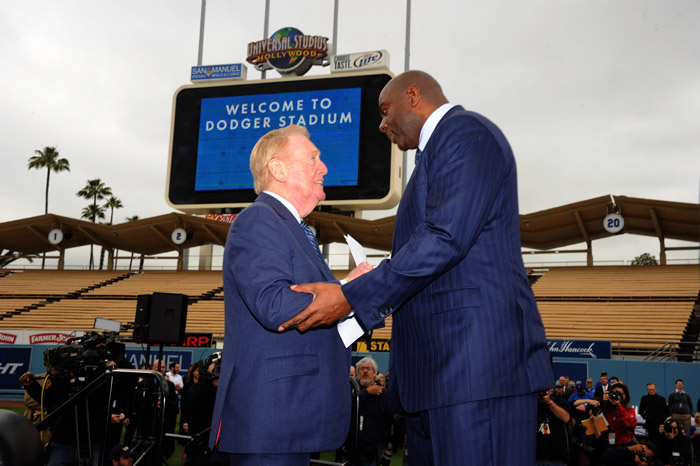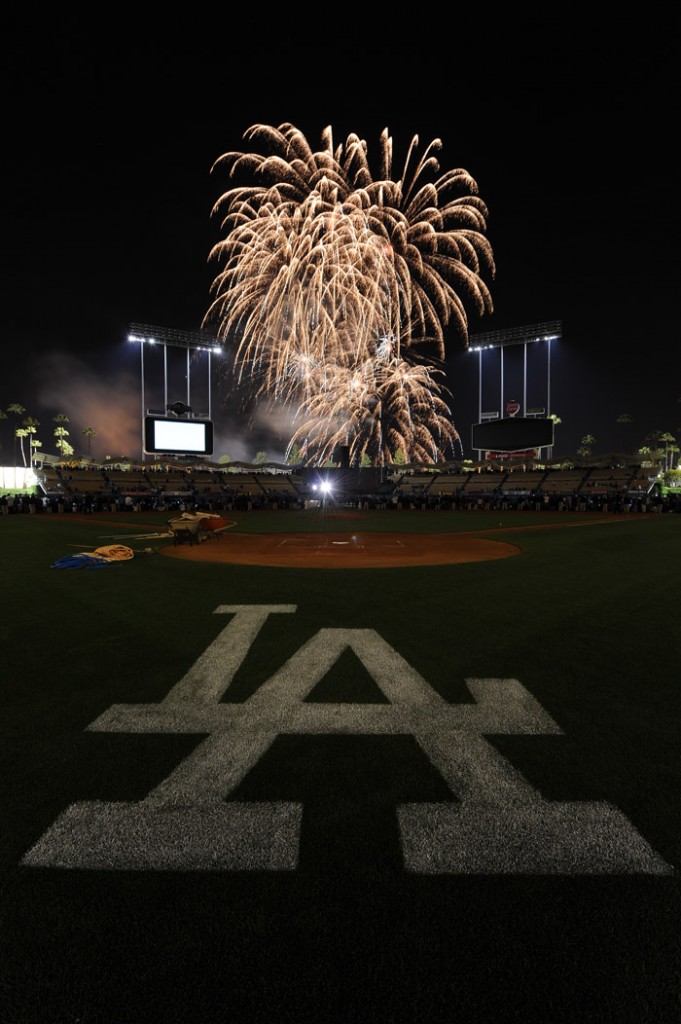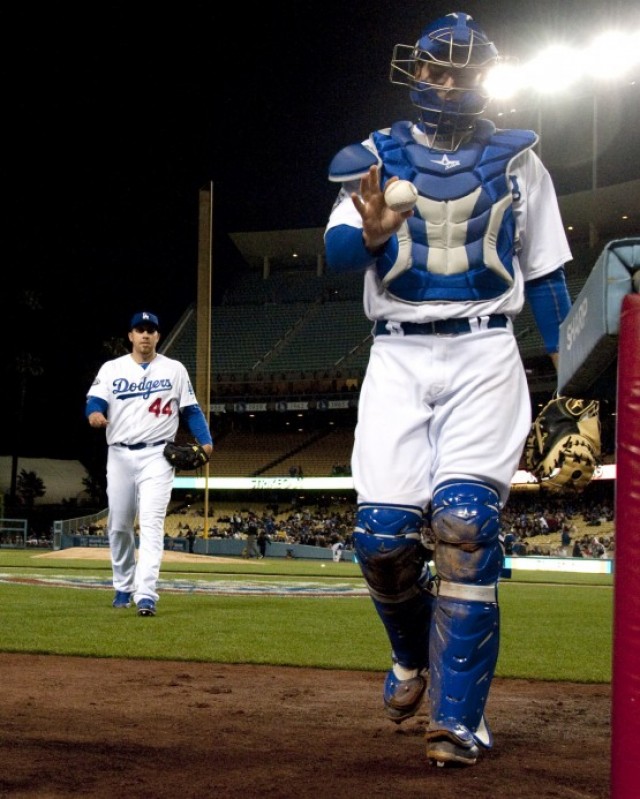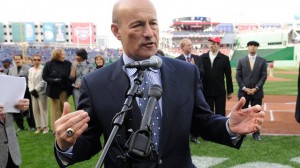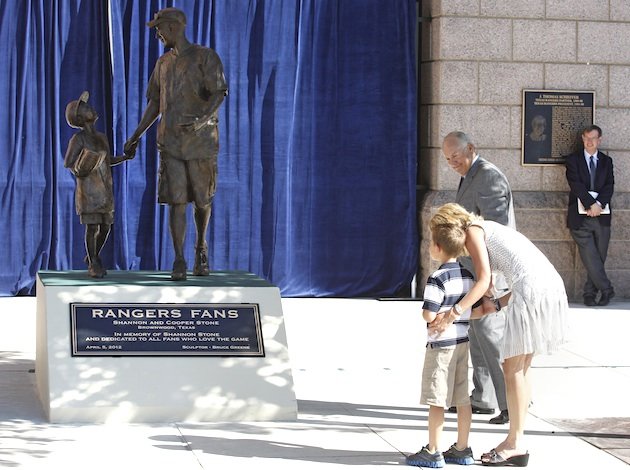In January, more than four months before the sale of the Dodgers was completed, Bill Shaikin clarified in the Times that Frank McCourt might not include the Dodger Stadium parking lots in the transaction.
That meant the new owners, while retaining the actual revenue from parking at the stadium, would owe McCourt a $14 million annual lease payment for use of the land. At the time, it was not clear whether McCourt was just using this as a bargaining chip, or whether he intended to hang onto the lots. But we lived in fear that some group bidding on the team would be unable to resist caving in to McCourt and letting him retain an interest in the property.
As it turned out,that’s what happened. McCourt did retain an interest in the lots when he sold the team to the Guggenheim group at the end of March. We learned this within hours of the announcement of the sale.
New owners collect daily parking revenue. McCourt retains interest in land. These facts were established weeks ago.
Then, at last week’s press conference introducing the Guggenheim ownership group, Magic Johnson told the assembled that as far as McCourt was concerned, his “only future profits is from new development, if we do any. … Frank’s not here, he’s not part of the Dodgers anymore.”
McCourt, Johnson said, “would not get a dime from the parking.”
It seemed clear to me what Johnson meant. McCourt would not be involved in the day-to-day operations for the Dodgers. He would not be making any decisions that didn’t involve development of the property surrounding the stadium. His income would not depend on how many tickets were sold and how many cars parked at Dodger Stadium.
None of this was contrary to anything we already understood.
But over the weekend, Gene Maddaus of L.A. Weekly reported that Johnson “flat-out lied to Dodger fans,” the first step in a you-know-what storm that not only (unsurprisingly) swept up T.J. Simers of the Times but even new team president Stan Kasten, who expressed regret to the Times that the new owners had given the wrong impression.
But had they?
Again, let’s review.
1) We know McCourt still has an interest in the Dodger Stadium property. That wasn’t denied.
2) McCourt isn’t getting parking revenue from the Dodgers. That remains true.
3) McCourt is getting a land lease payment from the new owners. That, despite Shaikin’s new report on May 4, was something we essentially had all known would be the case for more than a month. There was never any report that McCourt, in retaining co-ownership of the land, wouldn’t retain a financial interest in the Dodgers’ use of it.
The idea that we should be angry about this, that we should feel lied to, doesn’t make sense to me.
There are two separate things going on. One is that McCourt still has a connection to the world of the Los Angeles Dodgers. That is exceedingly unfortunate — and his profit from the team after the way he debased it is offensive — but it’s a fact of life and one we’ve had time to get used to. I wish it weren’t so, but it is.
But let’s be clear on the other thing. McCourt’s post-sale connection to the franchise is not a secret and has not been a secret. The new owners haven’t hid it, and while they understandably don’t want to talk about it, they did not hide it at the press conference last week.
The new owners didn’t lie. McCourt isn’t getting a dime from parking. He is getting lease income. Now, you can say that’s semantics, as Maddaus and Simers clearly believe, and that the two things are the same. But if you do so, you’re the one that’s being misleading, by implying that a fan going to the game can affect McCourt’s income by choosing whether or not to park at Dodger Stadium or not. It’s not true. Parking at Dodger Stadium does not affect how much money McCourt will get, any more than sales of tickets, hot dogs or baseball caps affect how much money McCourt will get.
So who is more guilty of giving the wrong impression about McCourt’s connection to the parking? The Guggenheim group, or the members of the press who misreport the connection?
Clearly, the Guggenheimerians could have handled this issue a little better, by outlining the land-lease payment the same way I just did. I actually thought the press conference last week was mostly a successful one, though their discomfort about talking about McCourt was palpable, a price of their ongoing relationship with him.
But the implication about this controversy is that it’s a metaphor, that it speaks to a level of deception with the new owners. Is it?
I don’t think it speaks to deception, as much fallibility.
The new owners have promised to make the Dodgers and Dodger Stadium the best they can be. They haven’t ruled out developing the surrounding property. They haven’t ruled out (to my chagrin) selling the naming rights. While they’ve said they are not broke and will invest in on-field improvements to the team, they haven’t indicated that there’s a blank checkbook. This isn’t the Chocolate Factory, and they aren’t Willy Wonka.
There isn’t much reason to believe that the Guggenheim group is up to some scheme that we’re not aware of. If you want to fear something, fear that they just won’t achieve what they set out to achieve.
If you were under the impression that the new owners would somehow make everything perfect at Dodger Stadium, you’ve got your own naivete to blame. I fully expect an improvement over the previous regime, thanks largely to Kasten, who said more meaningful things last week than I heard from McCourt in eight years and who, most importantly, has a relevant track record of success. But there’s no more going to be Nirvana here than there was under Peter O’Malley. Remember — even Matt Kemp gets out half the time. There’s no perfection in baseball.
My hope is that the new owners have the best intentions, and that their actions are positive ones. I want the Dodgers to win. I want Dodger Stadium to be the jewel it can be. But of course, there’s reason to remain skeptical about the Guggenheim group, just as there’s reason to remain skeptical about any set of businesspersons making grand pronouncements.
McCourt’s actions never backed up his words. Is that going to be the case with Guggenheim? We don’t know yet, and nothing that happened at last week’s press conference told us one way or the other. We know that the future of the Dodgers under Guggenheim will include McCourt on the periphery. That has not been in question, and no shocking revelations have emerged.
What remains in doubt — but what I remain hopeful for — is that the future of the Dodgers can flower despite this connection. That’s what matters.
Update: Magic Johnson was asked about the lease payment at the ownership press conference, this clip from Dodger Thoughts commenter Robert212 illustrates. Given this exchange – which I completely missed and don’t see quoted anywhere else – it’s fair to say that Johnson, irresponsibly, was not truthful about the arrangement with McCourt. And it certainly wasn’t worth obfuscating.
It’s disappointing, both as a follower of the Dodgers and as the writer of this piece today. I feel that this was a critical piece of information that I should have had. It wasn’t that I was ignoring it – I just didn’t have it.
I stand by my belief that lease money isn’t the same as parking revenue, but more importantly, I stand by my conclusion in this afternoon’s piece, which is that I hope and believe the Dodgers can flower despite the team’s connection with the McCourts. As I said in my piece, there’s reason to be skeptical – and that was true whatever Johnson’s words. The truth about what Johnson said rightfully might impact the trust that the fan base has with what is spoken by ownership, but hopefully it serves as a teaching moment that compels them to better, rather than the symptom of a pattern.
I don’t believe that the new ownership is poisoned. It’s simply too soon to know. Heck, even as I repeatedly criticized McCourt eight years ago, I still held out hope that he might prove an asset. I intend to do the same with the Guggenheim group.

